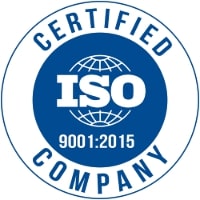BIS Certification for Domestic Clothes Washing Machines IS 302 (Part 2/Sec 7): 2010

Product Description
Domestic Clothes
Washing Machines are essential household appliances designed to simplify
laundry tasks, providing convenience and efficiency. These machines utilize
advanced technology to ensure effective cleaning, water conservation, and
energy efficiency, making laundry easier and more eco-friendly. With multiple
wash modes, customizable settings, and robust construction, these washing
machines cater to diverse household needs, delivering consistent performance
while prioritizing fabric care and user convenience.
Introduction
The Ministry of
Commerce and Industry mandates BIS certification for all domestic clothes
washing machines sold in India, under the Electrical Appliance for Domestic
Clothes Washing (Quality Control) Order, 2023. Issued through the Department
for Promotion of Industry and Internal Trade (DPIIT), this order requires
manufacturers to comply with Indian Standard IS 302 (Part 2/Sec 7): 2010,
ensuring that products meet safety, performance, and reliability criteria. With
BIS certification, manufacturers can use the ISI Mark on their machines,
assuring consumers of product quality and adherence to strict standards as per
the Bureau of Indian Standards Act, 2016. Certification enhances customer
trust, aligns with regulatory requirements, and supports a safer market for
domestic appliances.
Why is BIS Certification Necessary for Domestic Clothes Washing
Machines?
BIS certification
is vital for domestic washing machines to ensure consumer safety, reliability,
and durability. Certification verifies compliance with Indian standards,
reducing risks associated with electrical hazards, malfunctions, and energy
inefficiency. The Quality Control Order, 2023, mandates BIS certification,
aiming to eliminate substandard products and promote high-quality appliances in
the Indian market. Non-compliance may result in penalties under the Bureau of
Indian Standards Act, 2016. By requiring the ISI Mark, this certification
reinforces rigorous quality checks, ensuring products are safe for household
use and meet consumer expectations for reliable performance.
BIS QCO for Domestic Clothes Washing Machines
Overview of Indian Standard IS 302 (Part 2/Sec 7): 2010
Indian Standard IS
302 (Part 2/Sec 7): 2010 specifies safety and operational requirements for
domestic clothes washing machines. This standard covers essential aspects such
as electrical insulation, protection against overheating, and safeguards
against water-related hazards. Compliance with IS 302 (Part 2/Sec 7): 2010
ensures that washing machines are built to withstand rigorous use in home
environments while prioritizing user safety. Under the Electrical Appliance for
Domestic Clothes Washing (Quality Control) Order, 2023, meeting this standard
is mandatory for BIS certification, confirming that each machine meets the
stringent safety and quality benchmarks essential for reliable and safe
household performance.
Process for BIS Certification
The BIS
certification process for Domestic Clothes Washing Machines involves multiple
steps, designed to thoroughly evaluate a product's compliance with the required
standards. Here is a general overview of the certification process:
1. Application Submission: Manufacturers
must submit an application form along with required documentation to BIS.
2. Documentation Review: BIS reviews the
submitted documents to ensure completeness and correctness.
3. Factory Inspection: BIS officials
conduct an on-site inspection of the manufacturing facility to assess the
production process and quality control measures.
4. Sample Testing: Product samples are
taken and tested in BIS-approved laboratories to verify compliance with Indian
standards.
5. Certification Grant: Upon successful
completion of the inspection and testing, BIS grants certification, allowing
the manufacturer to use the BIS mark on their products.
Documents
Required for BIS Certification
To apply for BIS
certification, manufacturers need to submit the following documents:
●
Application form
●
Manufacturing process details
●
Quality control plan
●
Test reports from BIS-approved
laboratories
●
Factory layout and equipment
details
●
Proof of business registration
●
Product specifications and
technical details
●
Declaration of conformity to
Indian standards
Additionally, manufacturers may be required to provide proof of compliance with environmental and safety regulations, depending on the specific type of product being certified.
BIS ISI Mark Certification Costing And Timeline
To Know The Process in Detail, Please Visit:
- BIS ISI Mark Certification for Domestic Manufactures
- BIS ISI Mark Certification for Foreign Manufactures
Under BIS Registration Products ISI and CRS
Conclusion
BIS certification
is essential for domestic clothes washing machines, ensuring adherence to
safety, performance, and quality standards as per Indian Standard IS 302 (Part
2/Sec 7): 2010. Compliance with this certification supports consumer safety,
enhances product reliability, and aligns with regulatory mandates, fostering
trust and quality assurance in the market.
Navigating the BIS certification
process can be challenging, especially for small and medium-sized enterprises.
EVTL India is a leading consultancy firm dedicated to assisting manufacturers
in obtaining BIS certification (ISI Mark) efficiently. With expertise in managing
BIS portal submissions, documentation, and regulatory fees, EVTL India ensures
a smooth and successful certification process. By choosing EVTL India,
manufacturers can enhance their product's marketability both in India and
internationally, securing a competitive edge. Additionally, EVTL India provides
ongoing support post-certification, helping manufacturers maintain compliance
with BIS standards and renew their licenses as needed.























